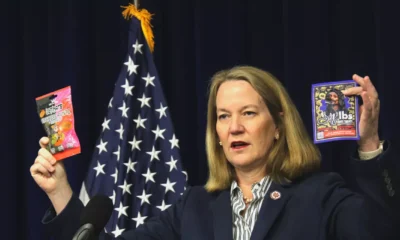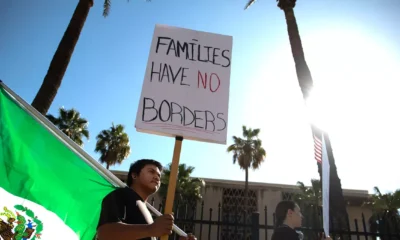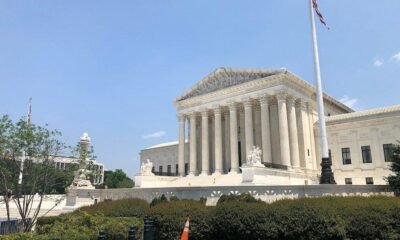AHCCCS
Revitalizing Health Care: Arizona’s Fight for Quality Care

In a closely contested vote of 215-214 on May 22, MAGA Republicans in Congress passed a budget reconciliation bill that fulfills a major goal of President Trump: substantial tax cuts for billionaires. This bill reallocates resources by cutting $715 billion from health care, primarily impacting Medicaid, $300 billion from Supplemental Nutrition Assistance Programs (SNAP), and approximately $500 billion from Medicare. Critics argue that this approach is a direct attack on vulnerable populations, sacrificing health care for millions in exchange for the wealth of a select few.
Economist Robert Reich, former Secretary of Labor, highlighted the bill’s inequities, showing that the top 0.11% would benefit by around $390,000 annually. In stark contrast, individuals earning less than $17,000 could incur a cost of about $1,000 each year, while those making between $17,000 and $51,000 might see a reduction of approximately $700 in disposable income. This disparity exacerbates existing inequalities in healthcare access.
Health care is considered a fundamental human right. Despite the flaws in current systems, progressive taxation has historically funded public health initiatives since the 1930s. Most citizens agree that prioritizing tax cuts for millionaires over health care for the needy is misguided. This sentiment resonates especially in Arizona, where over two million residents are enrolled in Medicaid through the Arizona Health Care Cost Containment System (AHCCCS).
AHCCCS is already seeking to “cut costs” by implementing stricter work requirements, with particular focus on seniors aged 54 to 65. Recent commentary from Congressman Frank Pallone of New Jersey shed light on the challenges faced by individuals navigating these systems. He noted that even with eligibility, many Georgians were unable to meet the complex requirements imposed, suggesting Arizona may follow a similar path that limits access to crucial services.
While the bill includes some exceptions for vulnerable populations, historical context indicates that many will defer seeking treatment until conditions deteriorate significantly, often ending up in emergency rooms at critical junctures.
The potential ramifications of this legislation are profound:
- A rise in the uninsured. An estimated 550,000 Arizonans could lose Medicaid coverage if state funding cannot offset federal reductions.
- Increased illness among patients. Delayed medical care typically leads to worse health outcomes.
- Strain on community health systems. Hospitals and clinics face the possibility of soaring uncompensated care costs.
- Economic contraction. For every billion dollars cut, Arizona risks losing over 36,000 jobs and $3.7 billion in economic activity.
All Arizonans deserve better than policies that intentionally undermine health and welfare. It’s crucial for elected officials to prioritize community well-being over tax incentives benefiting the wealthy.
The core issue here is not merely a matter of policy; it reflects deeper values. True legislative progress will be evident when representatives commit to providing quality health care to all citizens, particularly those at greatest risk due to financial instability or poor health.
Unfortunately, the current legislative climate in both Washington and Arizona appears focused on reducing burdens for the wealthiest individuals. As Paul Wellstone famously stated, “We all do better when we all do better,” emphasizing the interconnectedness of community health and socioeconomic stability.
Deborah Howard, a candidate for the Arizona House of Representatives, has extensive experience from her time at the U.S. Department of Labor and AARP.
Nelson Morgan, a retired faculty member from UC Berkeley and author of “We Can Fix It,” underscores the pressing need for reforms that counteract the disproportionate power of money in politics.


















